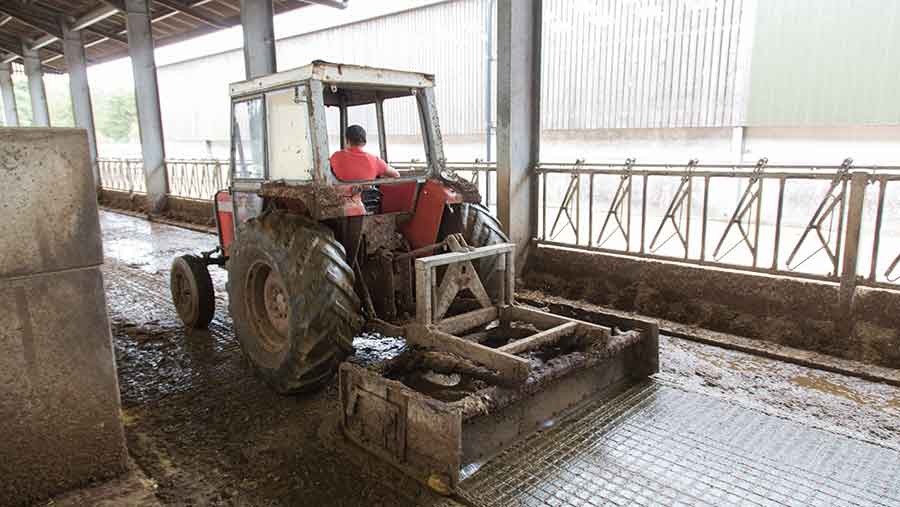Q&A: How to meet NVZ rules when expanding a dairy
 © Tim Scrivener
© Tim Scrivener Dairy farmers looking to expand their herds need to comply with a range of legal and financial hurdles, including environmental regulations if they live in nitrate vulnerable zones (NVZs).
Ged Davies, natural resource management team leader for Natural Resources Wales in Pembrokeshire, guides farmers through some of the environmental considerations to observe when expanding.
See also: Two dairy farmers on meeting NVZ regs to expand herds
I am expanding my herd with smaller cows than the average UK dairy cow. Is there an allowance in the calculation for smaller cows or cows producing lower yields?
The total nitrogen produced by livestock on the holding is calculated by the number of litres of milk each cow produces.
For example, a cow with a milk yield of less than 6,000 litres is calculated to produce 77kg of organic N/ha a year. Based on this figure the farm can be stocked at 2.21 cows a hectare.
Only some of my land is in an NVZ. How does this affect the calculations?
Most of the NVZ rules apply to individual fields. So stocking levels on a holding with fields subject to NVZ regulations can be increased only if the off-lying land is used, thereby ensuring that during the year the whole farm limit of 170kg N/ha is maintained.
How is summer grazing allowed for in the calculations?
The calculation for nitrogen produced on a holding in the NVZ only applies to the period the livestock are on the NVZ land.
Therefore, if a farmer grazes youngstock on off-lying land for five months of the year, the whole farm limit of 170kg/ha can be adjusted accordingly.
If I separate my parlour washings and dirty water, can that be applied in the closed period?
The closed period only applies to organic manures with readily available nitrogen of more than 30%.
What criteria must I meet to apply for an individual farm derogation to increase the nitrogen loading limit to a maximum of 250kg?
Any farm with grazing livestock and more than 80% of their area under grass can apply to work to the higher limit, but not all applications are successful. The derogation must be renewed annually.
If the farm is locked up with TB and it forces me to exceed the nitrogen loading limit, is there an allowance for that?
Current regulations do not allow for this. However, if the land is eligible for the grassland derogation, then this may resolve this issue.
In principle, force majeure may apply because of unavoidable circumstances, which renders the regulation irrelevant.
Farmers are nevertheless expected to make every effort to comply with the rules. Such situations are resolved on a case-by-case basis and farmers are advised to speak to their local contact.
